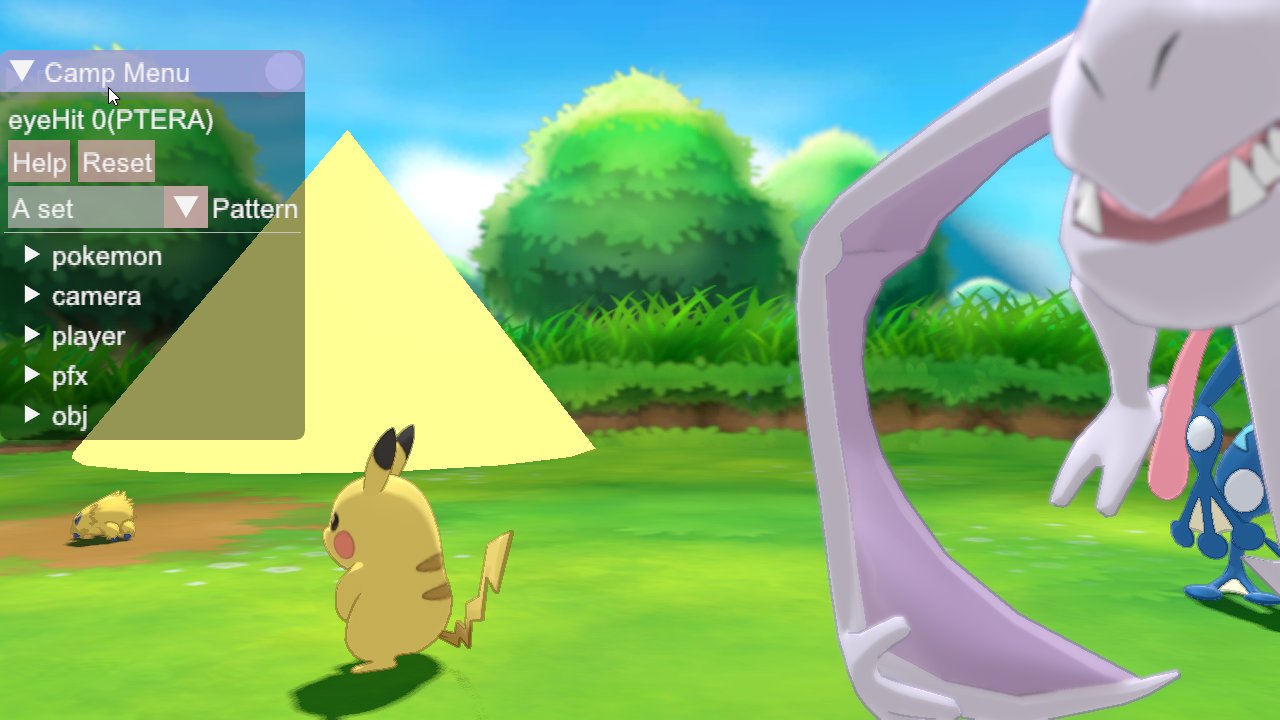imgui
 imgui copied to clipboard
imgui copied to clipboard
Gallery: Post your screenshots / code here (PART 12)
This is Part 12, I am splitting issues to reduce loading times and avoid github collapsing messages.
Browse all threads and find latest one to post to using the gallery label.
Also see: Software using dear imgui (you can help complete the list!)
You can post your screenshots here!
I have been using Dear ImGui to develop a simple user interface for xemu, an Original Xbox Emulator. The most interesting pieces of this UI so far are probably the dynamic controller configuration dialog and the "About" dialog, which mix in some OpenGL-rendered elements for custom widgets. I have plans to build on this further, but I'm happy with the interface so far and I highly recommend Dear ImGui for similar projects.


Thank you Dear ImGui developers!
P.S. Along the way I also had to solve file navigation. For this I decided to leverage native file selection interfaces and ended up picking this simple library.
About a year and a half using ImGUI for the Overload 3D Game Engine!
A whole event-based UI module has been built on top of ImGUI:
// Simple window with a button printing "Hello World" when clicked
class MyWindow : PanelWindow
{
public:
MyWindow()
{
auto& button = CreateWidget<OvUI::Widgets::Buttons::Button>("SayHello");
button->ClickedEvent += []() { Debug.Log("Hello World!"); };
}
};
// Keeps elementCount up-to-date with the elementCountField
class MyWindow : PanelWindow
{
public:
MyWindow()
{
int elementCount = 0;
auto& elementCountField = CreateWidget<OvUI::Widgets::InputFields::InputInt>("Element count:");
auto& elementCountDispatcher = elementCountField.AddPlugin<OvUI::Plugins::DataDispatcher<int>>();
elementCountDispatcher.RegisterReference(elementCount);
}
};
// A simple text with a custom contextual menu (On right click)
class MySuperContextualMenu : public OvUI::Plugins::ContextualMenu
{
public:
MySuperContextualMenu() = default;
virtual void CreateList()
{
auto& open = CreateWidget<OvUI::Widgets::Menu::MenuItem>("Open");
auto& edit = CreateWidget<OvUI::Widgets::Menu::MenuItem>("Edit");
auto& properties = CreateWidget<OvUI::Widgets::Menu::MenuItem>("Properties");
open.ClickedEvent += []() { DoStuff(); };
edit.ClickedEvent += []() { DoOtherStuff(); };
properties.ClickedEvent += []() { SoSomething(); };
}
};
class MyWindow : PanelWindow
{
public:
MyWindow()
{
auto& text = CreateWidget<OvUI::Widgets::Texts::Text>("Right-click me please!");
text.AddPlugin<MySuperContextualMenu>();
}
};
Editor UI
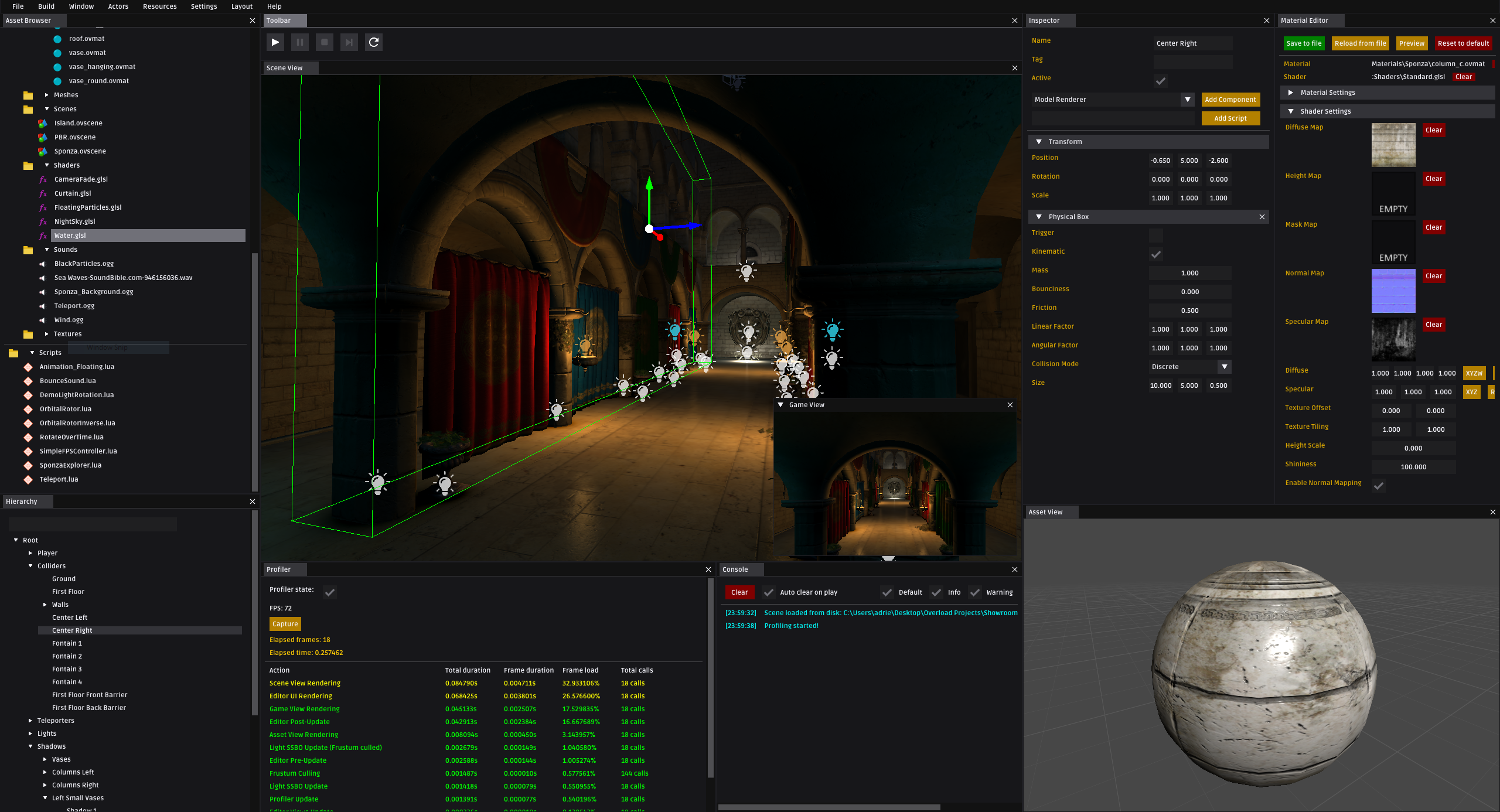

In-game debug UI
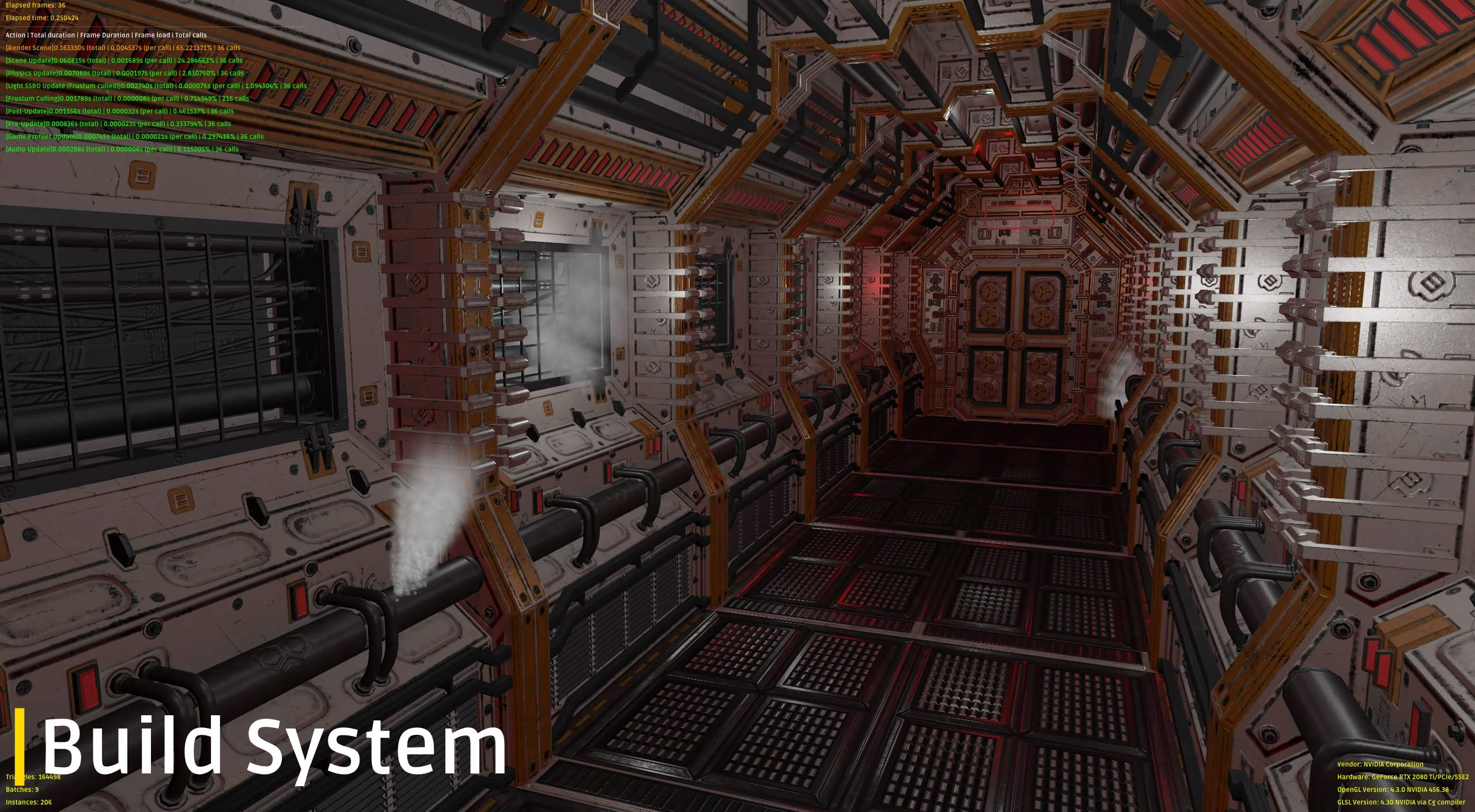
Hello! A bit over 1 year ago, we finished our student project called Pepr3D for 3D printing. Even though the project is not maintained anymore, I wanted to showcase our usage of ImGui here.
Essentially everything UI related in Pepr3D is using ImGui, even though it was heavily customized. We made a lot of use of functions like PushStyleVar, PushStyleColor, ButtonBehavior, CalcTextSize, RenderTextClipped, etc., which would otherwise take ages to implement ourselves. If anyone is curious, you can have a look into our /src/ui folder for source codes, especially SidePane and Toolbar.
Overall, I was really excited how easy it was to use ImGui and its API to create a completely new user interface that looks exactly as I wanted. It was a really great help that ImGui also implemented advanced functionalities like drag & dropping and color picking, which I used in our color palette management.

Here are a couple of gifs to showcase the UI. :-)


And showcasing the individual tools:
| Model import | Triangle painter |
|---|---|
 |
 |
| Paint bucket | Brush |
|---|---|
 |
 |
| Text editor | Export assistant |
|---|---|
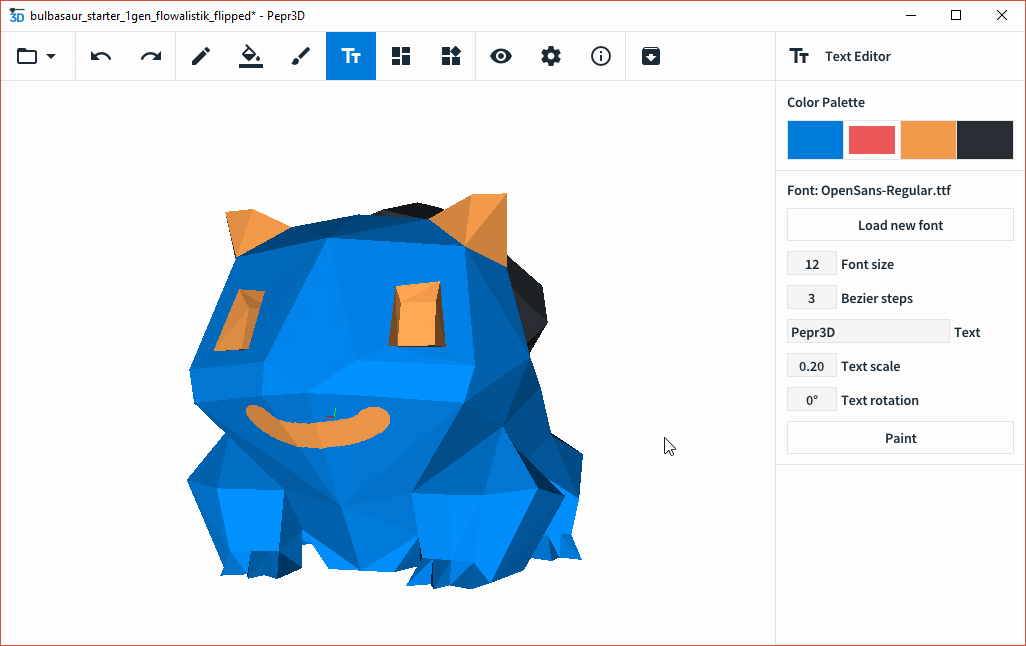 |
 |
Hello!
here goes a project of mine in current development ( beta stage now ), called Mosaic, a livecoding programming/patching environment for creating real-time audio-visual compositions. It's principally designed for live needs, as can be teaching in class, live performing in an algorave, or running a generative audio-visual installation in a museum. It aims to empower artists, creative coders, scenographers and other creative technologists in their creative workflow. It's a FLOSS, Free/Libre and Open Source Software with multi-platform support, and it's written in C++, offering high performance.
His GUI ( node canvas, nodes, links, menus and everything ) is completely builded with the amazing Dear ImGui, coupled with openFrameworks for texture drawing.
Mosaic is shipped with an internal code editor, non-blocking system dialogs, a programmable non-linear interactive timeline, an included patch video exporter with subtitler for easy tutorial creation, lua/python/glsl/bash live-coding and pure data live-patching capability, a good selection of audio synthesis modules, multiple fullscreen output windows capabilities ( as many as your system can have ) with an independent warping for each window, a map-map style integrated mapping module, and an easy to use osc sending/receiving objects/nodes for network communication.
The idea behind Mosaic is to facilitate human-machine communication, to amplify imagination and to speed up the creative workflow, without sacrificing the spectrum of possibilities. To achieve this, it bundles together various creative-coding tools, acting as an interactive bridge between them. It includes a collection of audio-visual objects that can be easily connected together using a nodal-based graphical interface, defining a custom dataflow.
Mosaic is mainly based on two frameworks : OpenFrameworks and ImGui. OpenFrameworks is an open source C++ toolkit for creative coding. Dear ImGui is a bloat-free graphical user interface for C++ with minimal dependencies. Together with the latter ones, Mosaic bundles comes with other 3rd party libraries such as PureData Vanilla and numerous ofxAddons. It also embeds various programing languages for live-coding purposes : Lua with OF-bindings, Python 2.7 scripting interpreter, live compiling of GLSL shaders and editing/execute Bash scripts (macOS & linux) capabilities.
Mosaic is extendable : you can easily add custom objects. While this involves writing and compiling code, requiring some C++ knowledge, we aim to make this process as easy as possible. Thus, Mosaic is flexible and devoted to grow over time. For example, any Openframeworks project can be easily ported to Mosaic Objects, exposing them to the live-patching environment. This way, working with OF becomes way more modular, and you can make run-time adjustments. Possibilities are endless. Once created, plugins can either be statically compiled into Mosaic, or if you wish, there's also support for dynamically loading them, making it easy to share and distribute your objects with others.
Mosaic is still under development and in Beta release, but has been already successfully used for 2 years at the Fine Arts faculty of the UPV university, Valencia, Spain. It has been deployed in multiple student projects presentations, and in some interactive installation in public cultural spaces.
Today, Mosaic has sufficiently grown to be tested by a wider group of people.
If you're curious, please try out Mosaic and don't hesitate to get in touch. Mosaic is open to anybody, contributions of any kind are welcome.
Mosaic development team is composed by Emanuele Mazza [https://github.com/d3cod3] Daan de Lange [https://daandelange.com/] and Maria José Martínez de Pisón
More information can be found here:
- Mosaic's official webpage
- Mosaic's github repo
- Core visual programming addon
- Mosaic installer ( linux | windows )
And some screenshots here:




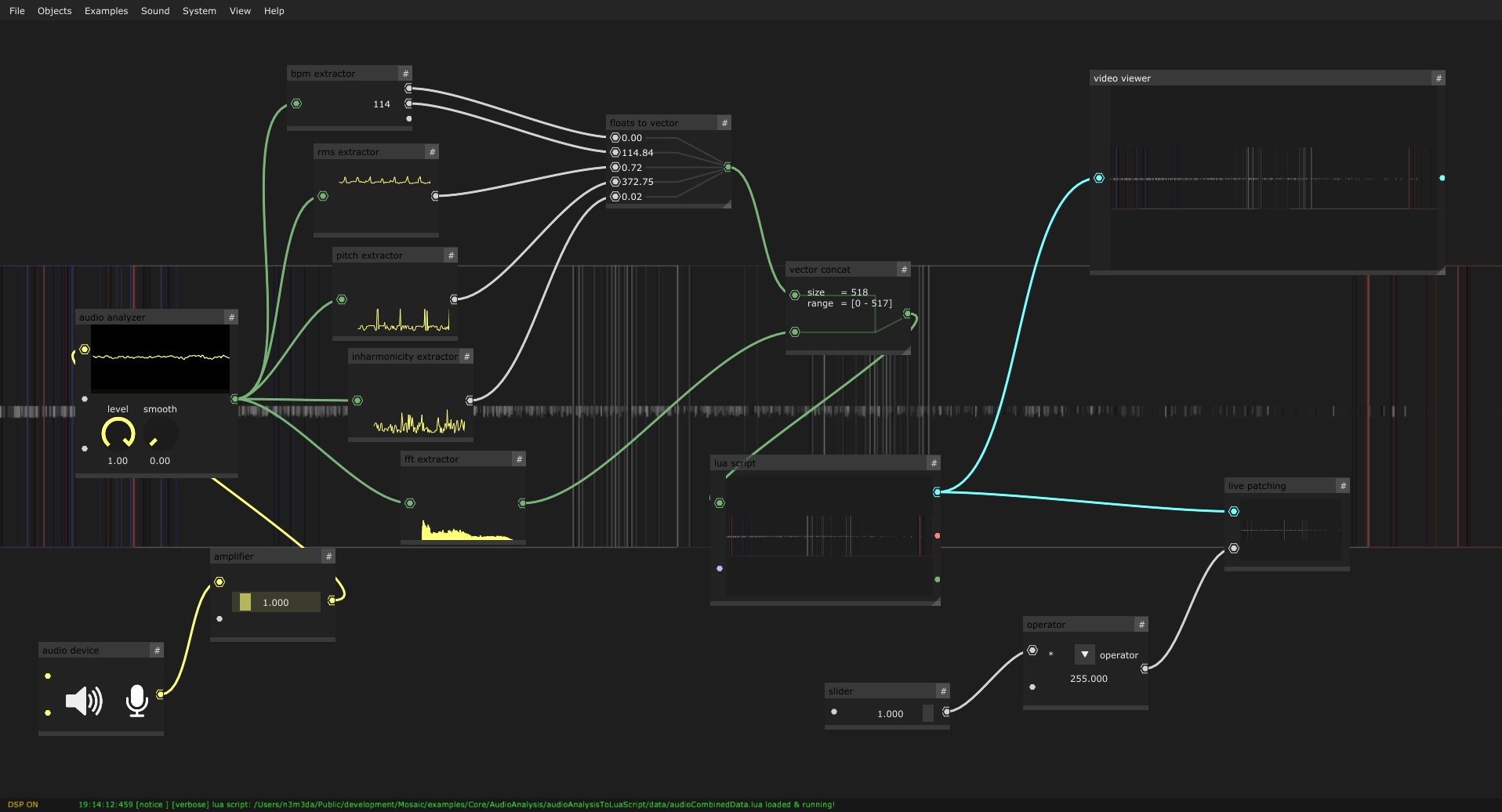
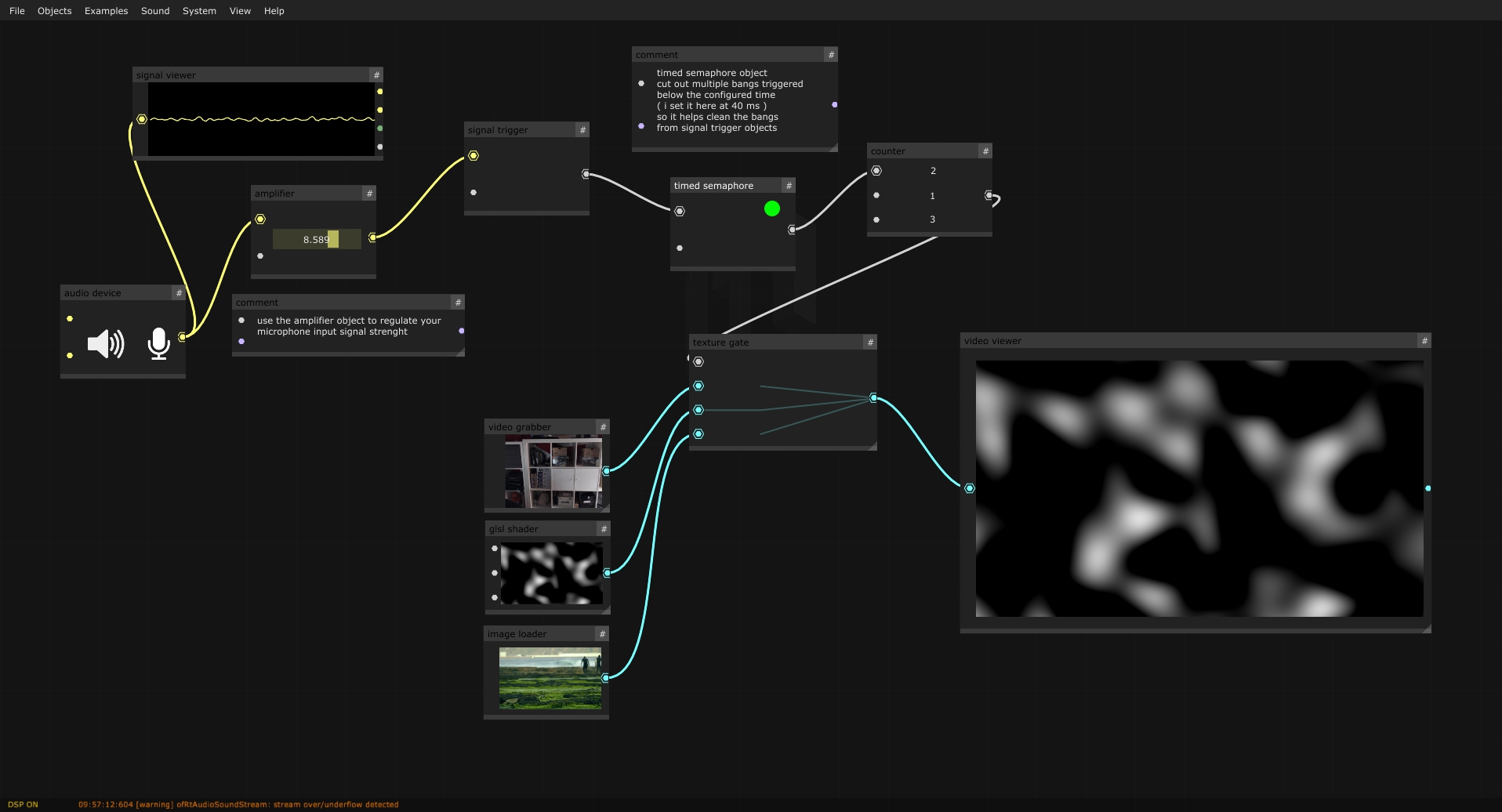
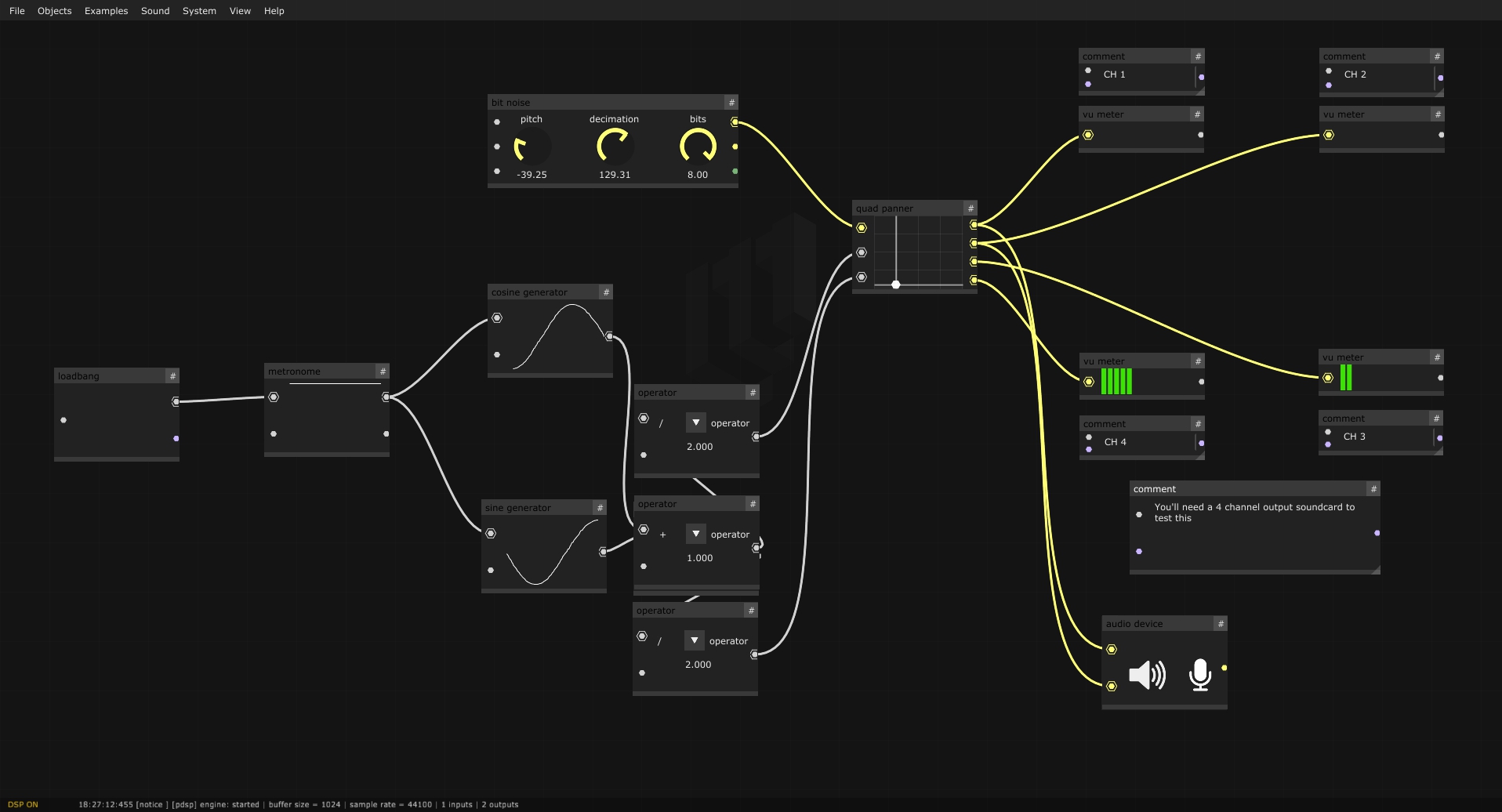

Kanteran: "This is a code-block editor for education using dear imgui"

Joel16: "I'm developing a file manager on the Nintendo Switch which uses Dear ImGui."
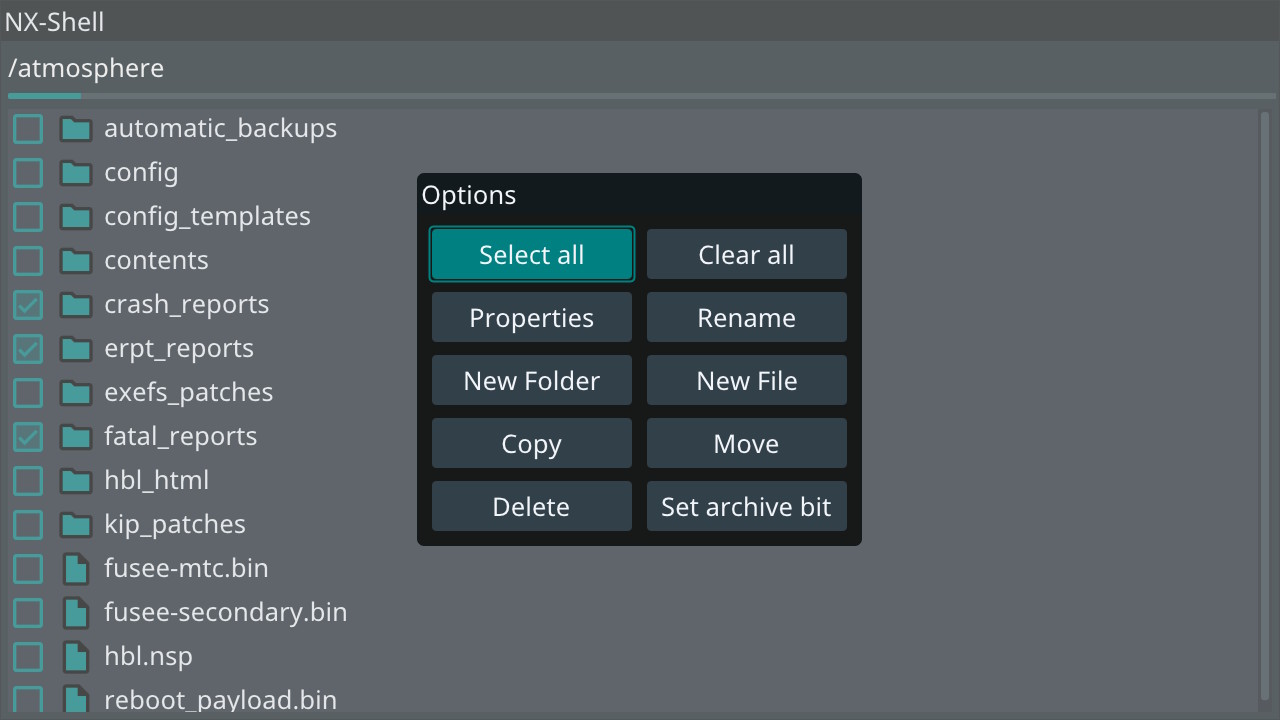
@thedmd: " I'm developing more concrete blueprint example for node editor. This one does real job behind the nodes.
It will land on main branch as an example when I decide it is decent enough. You can look at the code right now on https://github.com/thedmd/imgui-node-editor/tree/develop branch. Code is in flux so a lot can change yet."

@kudaba "That's pretty much what I have in my node system (users can very easily describe new nodes and graphs in c++ with the graphs able to compile into efficient run-time)"


Dear ImGUI is so cool that I put imgui into a layered child window.
Say goodbye to MFC, emWin, ucGUI, microWindows, Kivy, Qt, RIP!
Thank you! Dear ImGUI.
A ffmpeg-based video encoding tool built with imgui.


I set up an initial implementation to render VTK's display frame buffer into an ImGUI window (with ImGui::Image). Nothing fancy, but pretty cool. Now all of VTK's dataset manipulation/visualization capabilities can be realized in a project that uses DearImGUI for its UI. Note: Until now VTK was restricted to QT/MFC.
Supported VTK version >= 9.0.0
Source: Repo
Usage is straightforward for DearImGUI users:
Platform init
renderer backend init
ImGui_ImplVTK_Init()
ImGui_ImplVTK_AddActor(..)
while(!terminate)
{
ImGui::NewFrame()
...
ImGui_ImplVTK_Render()
ImGui::Render()
ImGui_ImplXXXX_RenderDrawData(ImGui::GetDrawData());
}
Demo:
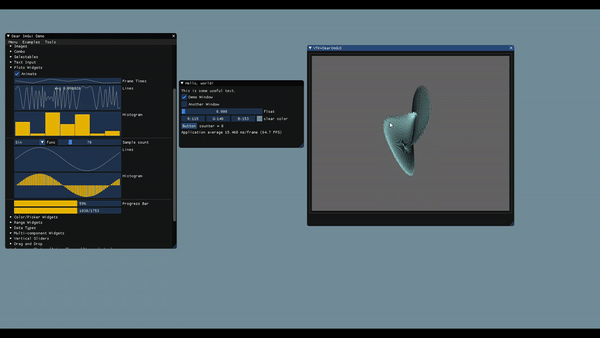 VTK forums link
VTK forums link
A little hobby project i've been working on:
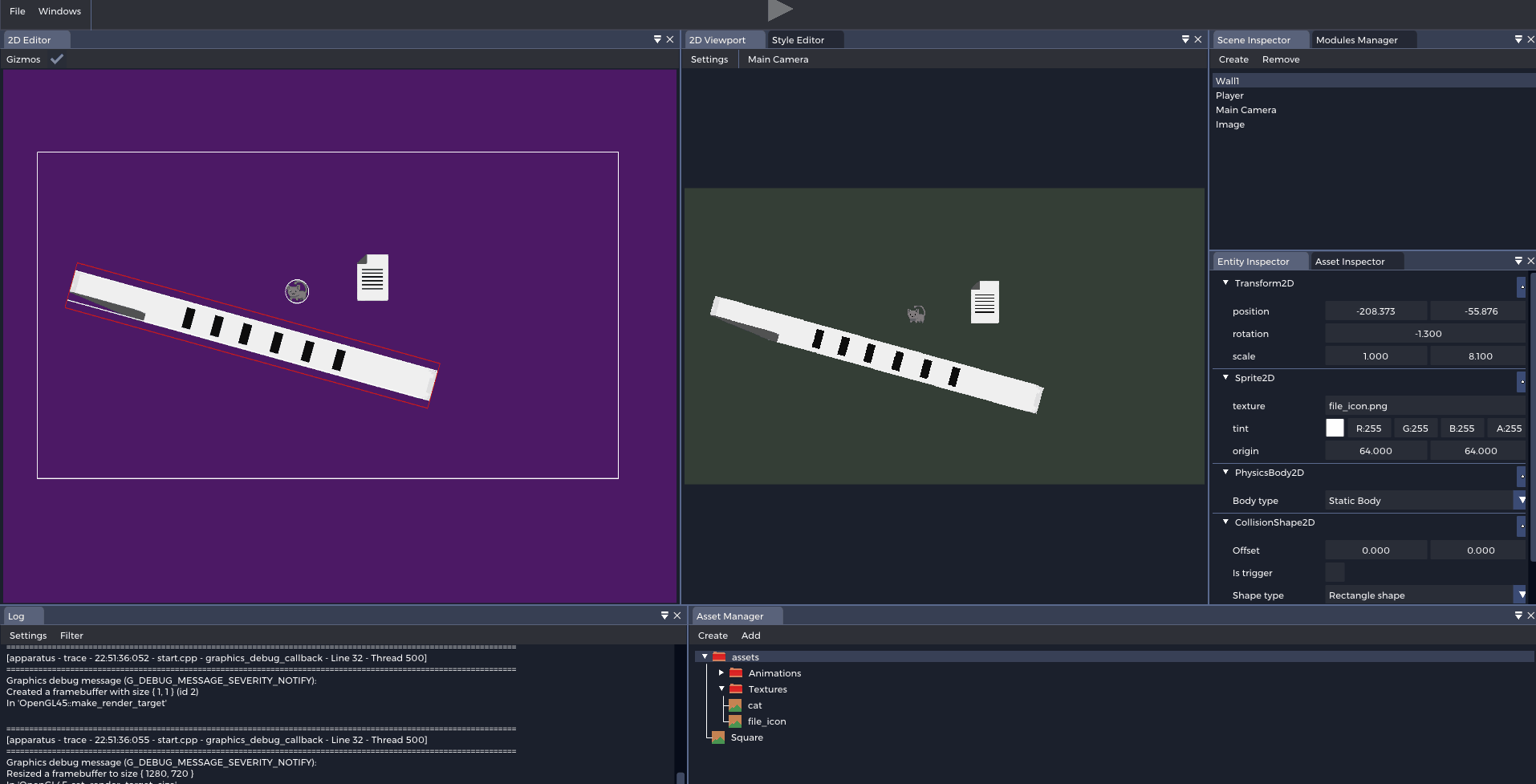
https://github.com/asbott/Apparatus
Visual node graph + creative coding with ImGui :)
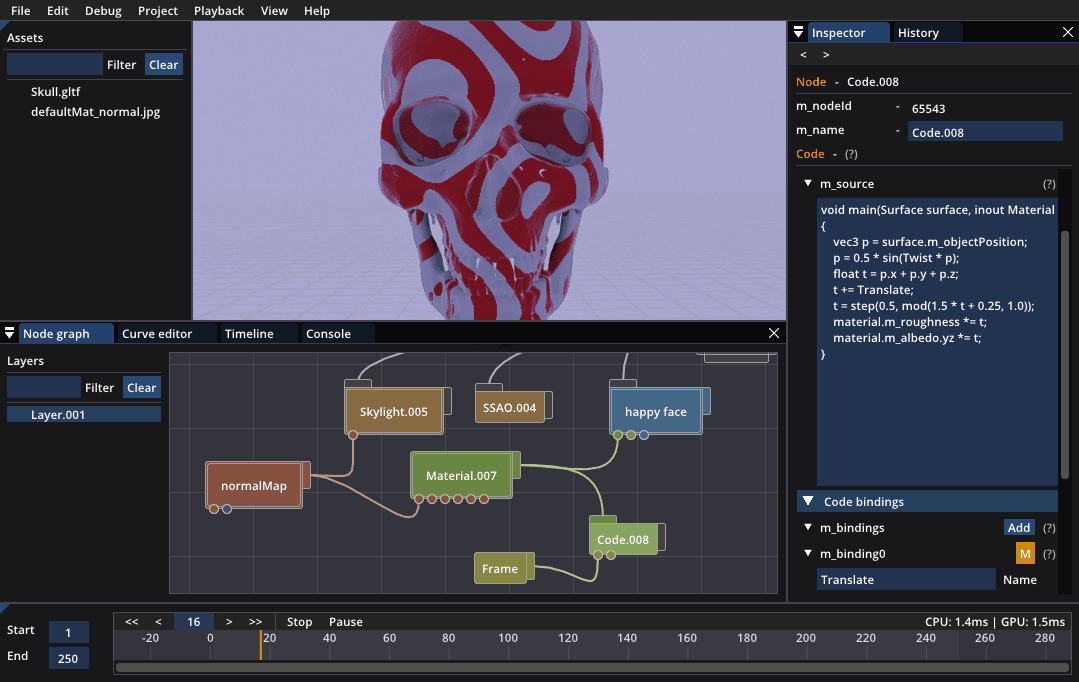
pokemon sword and shield. seen here. more in this thread

A fully functional Terminal Emulator widget for ImGui
A GUI control tool for a lab RF device QA rig:

Plots are rendered on a Matplotlib surface with ImGUI datascience.
Being designed to work over an independent GL scene, Dear ImGui does not fit this kind of use case too well, but it's so easy to use and looks very cool =)
Memory watcher for my GBA emulator
It's very WIP and I'm trying to make it look better :P
The reason for me making it from scratch is that the memory watcher extension for ImGui dies when feeding him with address spaces that are larger than 24 bit (IIRC, at least that's what has happened to me and some other emulator developers), and since the GBA has an address space that ranges from 28 to 32 bit, here I am :3





More screenshots of the Terminal Emulator imgui widget. It's almost complete, and I plan on releasing it as a library that may be used to get the ability to run a terminal in a application (for a shell, repl etc). It should work on Windows, Linux, *BSD, and it may be combined with WSL, docker or SSH etc. It's been working great since the last time i posted a screenshot, I've been developing the rest of it inside of with Neovim
The reason for me making it from scratch is that the memory watcher extension for ImGui dies when feeding him with address spaces that are larger than 24 bit (IIRC, at least that's what has happened to me and some other emulator developers), and since the GBA has an address space that ranges from 28 to 32 bit, here I am :3
Why not trying to fix it instead? I haven't tried but I am assuming that there'll be an issue with floating point precision with large scroll amount. I don't know how you'd intend to solve it but whatever the solution (maybe implementing custom scroll bar + virtualizing position) it would be worth implementing it in the existing memory editor.. (let's resume this discussion in imgui_club issue tracker)
The reason for me making it from scratch is that the memory watcher extension for ImGui dies when feeding him with address spaces that are larger than 24 bit (IIRC, at least that's what has happened to me and some other emulator developers), and since the GBA has an address space that ranges from 28 to 32 bit, here I am :3
Why not trying to fix it instead? I haven't tried but I am assuming that there'll be an issue with floating point precision with large scroll amount. I don't know how you'd intend to solve it but whatever the solution (maybe implementing custom scroll bar + virtualizing position) it would be worth implementing it in the existing memory editor.. (let's resume this discussion in imgui_club issue tracker)
Eh, I actually don't know what exactly is causing the issue, so opening an issue thread in the imgui_club repository seems like bothering to me. I'll open up one once I find out the precise reason 👍
Currently playing with Dear ImGui to see how it could fulfill my styling hopes
Here is a heavily tweaked modal:

I play here https://github.com/phicore/ImGuiStylingTricks/wiki/Custom-MessageBox maybe it could help some beginners...
Bitty Engine is an itty bitty game engine, with built-in editors, programmable in Lua. Available for Early Access now on Steam.

Some hobby projects I developed with Dear ImGui.






I'm currently working on a hex editor suitable for reverse engineering binaries using ImGui as the UI library. It features patterns to highlight bytes and extract data from the file, strings searching, file type detection based on magic values, hashing tools and a bunch of quality of life tools :)
GitHub Page: https://github.com/WerWolv/ImHex

Using nlohmann::json and imgui to create a visual representation of a JSON file with editable fields and keys for labels.
Supports all nlohmann::json types (int64, uint64, bool, double, array, object...) although only text is in screenshot.
Code: https://github.com/DomRe/galaxy/blob/dev/supercluster/src/widgets/JsonEditor.cpp
Relevant functions are:
parse_and_display()
do_object()
do_array()
Note:
I did use the C++ imgui addon from the official (this) repo and also a togglebutton widget I found in the wiki.
I just made a very simple and funny game named "Meme Killer" using Dear ImGui You should kill the memes in it (lol) https://www.youtube.com/watch?v=r_2xL6kNvIY

A simple profiler. A poor-man's Tracy. I found having it built in and always available makes it into a really useful debug tool. Code: https://github.com/Rezonality/mutils/blob/master/src/time/profiler.cpp
Based on Initial prototypes from: https://gist.github.com/CedricGuillemet/fc82e7a9b2f703ff1ebf https://github.com/arnaud-jamin/imgui/blob/master/profiler.cpp
This one is better at spans that cover frame boundaries (so all events don't need to happen between the frames). It uses C++ standard libraries, no OS specific timer/thread stuff. No claims made about performance, but in practice has been very useful in finding bugs - just as a parallel thread viewer it is really useful. Has a 2-row summary view and support for zoom/pan, CTRL+select range or click in the summary. I use it for GUI and Audio Thread navigation. The profile macros can pick a unique/nice color for a given name There is a LOCK_GUARD wrapper around a mutex, for tracking lock times.
Remote Behaviour Tree Debugging
Code at: https://github.com/mgerhardy/engine/tree/master/src/tools/aidebug


Stumbled on this: A Hex Editor for Reverse Engineers, Programmers and people that value their eye sight when working at 3 AM. https://github.com/WerWolv/ImHex
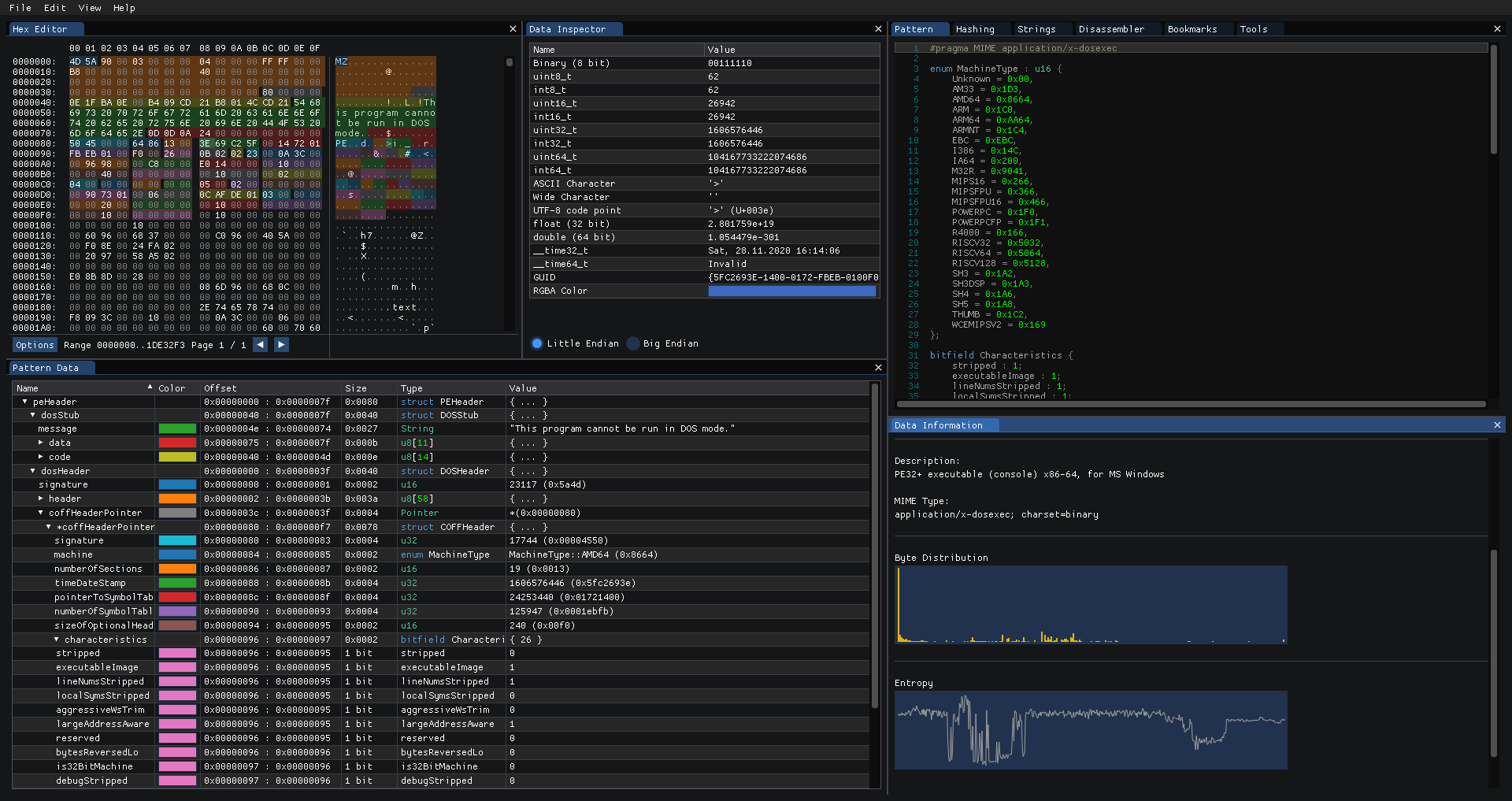

ImHex was already shown in this very same thread...
@ocornut Hi, do you think would be interesting to open a Github "Discussions" for ImGUI so all these interesting demos and extra widgets could be archived + would help a bit in separating code issues from Q&A?.
